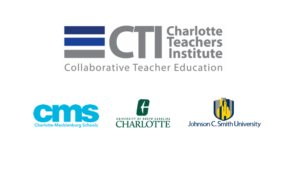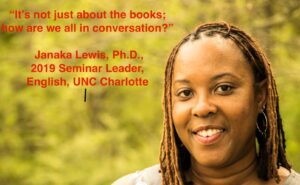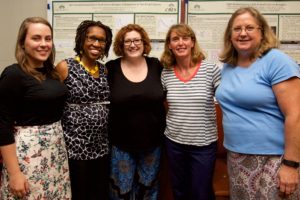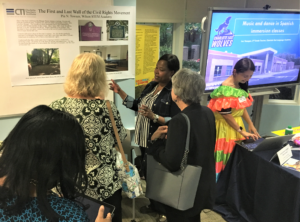Sarah Minslow, Ph.D., Lecturer, English, UNC Charlotte
(meets at Johnson C. Smith University)
This seminar will (re)introduce teachers to the 30 articles of the United Nations’ Universal Declaration of Human Rights and the UN Convention on the Rights of the Child (CRC), which is “the first human rights treaty that explicitly requires states … to ‘make [children’s rights] widely known.’” Fellows will examine different examples of human rights educational programs and discuss the importance of educating children about their rights. Beginning with a variety of texts created for young audiences, we will explore how to integrate human rights lessons in ELA, social studies, math, science, public health, and/or technology classes. Some of the topics covered may include racial, socioeconomic, and gender equality; sustainability; climate change; privacy; justice; seeking asylum; and freedom from slavery and discrimination. Examples of curriculum units include the socioeconomic impact of accepting refugees, ethical considerations in technological or scientific advancements, juvenile justice reform, or giving young people a voice in matters that impact their lives. Fellows will be able to choose which human rights issues most appeal to them and will be directed to resources to develop their curriculum units with those issues in mind.
Some texts analyzed in this workshop may include works by Dr. Seuss, Henry’s Freedom Box, Chains, The Day of the Pelican, The Journey, The Red Pencil, A Long Walk to Water, Fallen Angels, Amelia and Eleanor Go for a Ride, Pancho Rabbit and the Coyote and One Green Apple. Fellows will have the opportunity to explore different texts and consider how the texts or their themes could be used in the curriculum. We will explore what literature teaches readers about their rights and the rights of others, how it can be used to teach children about human rights violations in the global context, and how the texts may potentially contribute to a “rights-fulfilling and rights-respecting culture.” Research shows that teaching children about human rights produces positive outcomes – increased self-esteem, heightened respect for others’ rights, a reduction in bullying and other benefits. The aim of the seminar is to build educators’ confidence in their abilities to teach students about human rights in ways that inform, enlighten, and empower young people to participate in a more rights-respecting society.
Explore curriculum units developed by Fellows in this seminar here.
























 Home
Home